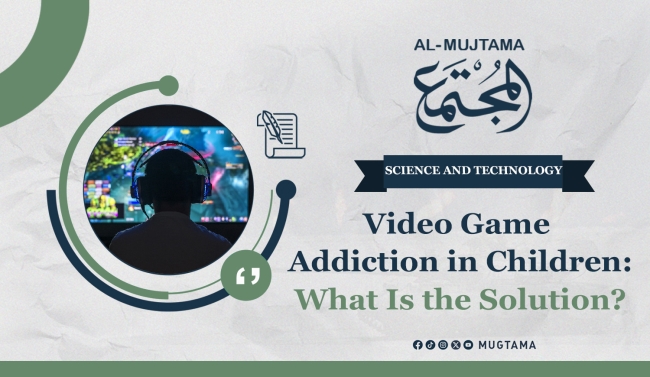Video Game Addiction in Children: What Is the Solution?
During the COVID-19 years, nearly 1.5 billion children stopped attending schools, spending more time in front of screens for studying or playing video games. This led to increasing rates of video game addiction and prompted the World Health Organization (WHO) and several countries to address the phenomenon.
This issue has become a global concern. In June 2018, the WHO classified video game addiction as a "mental health disorder" for the first time, as part of its International Classification of Diseases, developed over more than a decade.
The WHO noted that “to diagnose gaming disorder, the behavioral pattern must be severe enough to significantly impair personal, family, social, educational, occupational, or other critical areas of functioning and should generally be evident for at least 12 months.”
According to the UN's official website, some believe this step could benefit those suffering from this disorder, while others worry it might cause unnecessary parental anxiety.
The WHO emphasized that, in a world of over a billion people speaking nearly 7,000 languages, the International Classification of Diseases provides a shared vocabulary for documenting, reporting, and monitoring health issues.
The organization also highlighted studies showing that video game disorders affect only a small percentage of individuals who use digital or video games. However, it warned that all players should monitor their gaming time, especially if it starts interfering with daily activities.
Striking Numbers and COVID's Role
Starting in April 2020, nearly 1.5 billion children stopped attending schools, spending more time on electronic devices. This increased the risk, particularly for younger individuals, of harms related to excessive screen time, including unhealthy sedentary lifestyles, exposure to harmful content (violent or sexual), and developing gaming addiction disorder.
A report by Fortune Business Insights revealed that the global video gaming market reached over $249 billion in 2022 and is expected to grow to over $281.77 billion in 2023, and $665.77 billion by 2030.
By 2023, the number of video game players is expected to surpass 3 billion, according to Game Quitters, which noted that an increase in players would likely result in a rise in gaming addiction cases.
More than 2 billion people worldwide play video games, according to Game Quitters, a platform offering support to those seeking to quit gaming and regain their normal lives.
The same platform estimated that 3-4% of these players are addicted to video games, conservatively estimating that around 60 million people worldwide are already addicted.
Warnings
The WHO, through its website, highlighted several signs of excessive screen time or video game addiction.
Some of the most common signs include a negative impact on a person’s ability to focus and complete school tasks, and harm to their relationships with family and peers.
Such addiction or excess can lead to prioritizing gaming over basic activities like eating, sleeping, personal hygiene, and exercise.
It can also cause significant mood changes or loss of control over irritability (such as physical aggression) when asked to stop gaming activities.
Solutions
The WHO called on healthcare providers to spread awareness about the dangers of excessive screen time or video gaming and ways to prevent such risks.
They should also offer online psychological support sessions and counseling for individuals suffering from video game addiction disorders whenever possible.
As for digital technology and gaming companies, they must ensure the inclusion of “safety measures and parental controls in online activities and games” and “develop gaming programs that encourage physical activity among young people,” according to the WHO.
Policymakers worldwide need to address the escalating risks children face online and “support the development of public educational materials on the harms of excessive screen time and online activities, including video gaming.”
-------------------------------------------------------------
Source: Agencies


